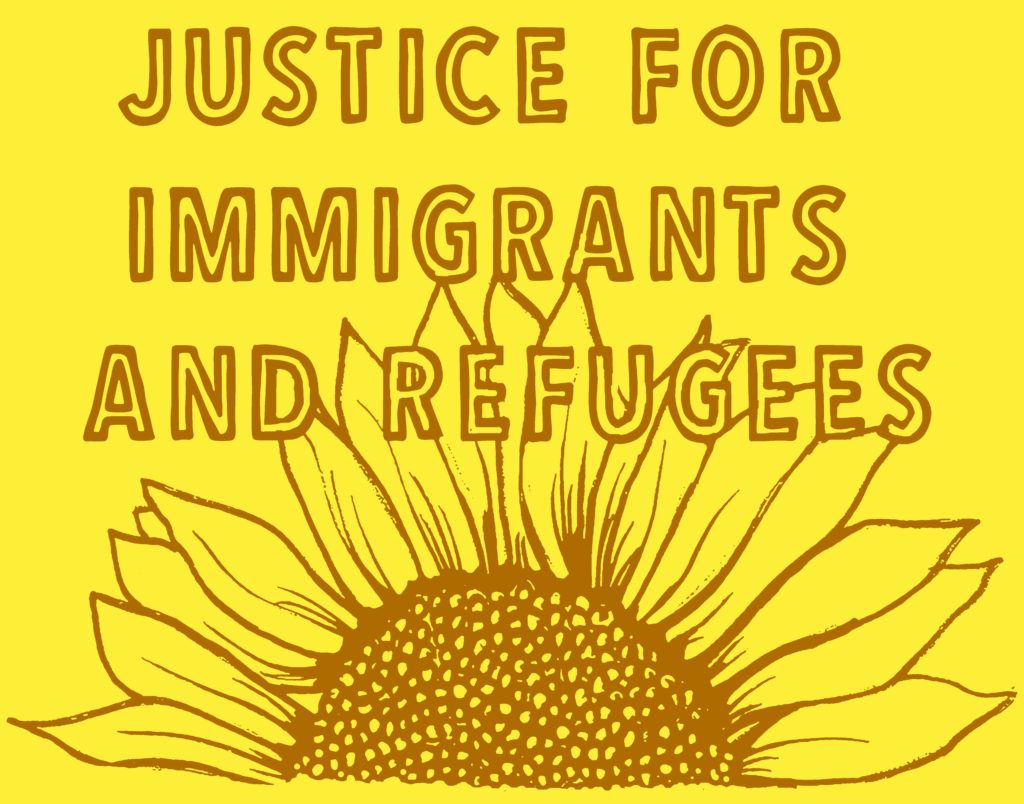Crimmigration is a dynamic field of law at the intersection of criminal law and immigration law. Students in the Crimmigration Clinic take the lead on cases and projects concerning a myriad of crimmigration-related issues, including the crime-based grounds of removal, immigration detention, and the use of local law enforcement resources to carry out immigration enforcement initiatives.
Students in the Crimmigration Clinic may represent clients in appellate proceedings, federal district court proceedings, or the Boston Immigration Court. Below is a sample of the types of cases and projects Crimmigration Clinic students have worked on in the past.
Direct Representation
The Crimmigration Clinic assists individuals across the country whose cases have elements of both criminal and immigration law. Here are two stories of past Crimmigration clients:
- “David”, a lawful permanent resident, was put into deportation proceedings after he was denied immigration relief due to a past conviction. Thanks to representation by the Crimmigration Clinic, David won his BIA appeal and was released from detention.
- A lawful permanent resident was detained for a year and a half due to an old drug-related conviction. The Crimmigration Clinic filed a BIA appeal that argued that the statute had been applied correctly based on precedent from the Supreme Court and other jurisdictions, and their client was subsequently released from detention.
Litigation
Dor v. Garland (08/2022) (First Circuit)
In this favorable decision, the First Circuit Court of Appeals ruled that the BIA failed to take the proper steps in order to conclude that the petitioner’s conviction constituted a “particularly serious crime” bar.
United States v. Rodrigues-Barios (03/2022) (Ninth Circuit)
This brief was filed on behalf of historian Dr. S. Deborah Kang and argues that the federal illegal reentry criminal statute is unconstitutional because its enactment was motivated by racial animus. This brief has also been filed in other circuit courts, including the Fourth and Tenth Circuits.
Response to Amicus Invitation (04/2022) (BIA)
This amicus brief, filed jointly with the Immigrant Defense Project, argues that the Board of Immigration Appeals should reopen removal proceedings in cases of vacated convictions.
Diaz-Ortiz v. Garland (01/2022) (First Circuit)
In this favorable decision, the First Circuit ruled en banc that information in the nefarious Boston Regional Intelligence Center’s (“BRIC”) gang database cannot be relied upon in removal proceedings.
Granados Benitez v. Wilkinson (01/2021) (First Circuit)
This favorable decision grants the petition of a Honduran man whose motion to reopen removal proceedings was previously denied by the Board of Immigration Appeals.
Pangea Legal Services v. DHS – Complaint (12/2020) (N.D. Cal.)
This complaint is regarding a new rule that would restrict asylum eligibility. Our Program represents plaintiffs in the lawsuit that was filed.
Bare v. Rosen (12/2020) (Ninth Circuit)
This brief argues that the “particularly serious crime” bar to withholding removal first requires an adjudicator to analyze the elements of offense at issue before reviewing the underlying conduct of the offense at issue.
New Jersey v. Molchor (11/2020) (Supreme Court of New Jersey)
This brief argues that denial of pretrial release in criminal proceedings should not be based on immigration detainers because they are unreliable, constitutionally suspect, and do not accurately predict likelihood of immigration detention or removal.
Pangea Legal Services et al. v. DHS (11/2020) (N.D. Cal.)
Our Program represents plaintiffs in a lawsuit filed against the U.S. Department of Homeland Security (DHS) regarding a new rule that drastically restricts asylum eligibility.
Silva v. Barr (10/2020) (Ninth Circuit)
This brief asserts that “crimes involving moral turpitude” do not include petty theft offenses because petty theft is not considered based, deprived, or vile and the public generally views them as minor.
Laureano-Valdovinos v. Barr (09/2020) (Ninth Circuit)
This brief argues that the “crime of child abuse” removal ground often sweeps in offenses unrelated to child, which is not what Congress intended when it created the removal ground.
Ortiz v. Barr (08/2020) (First Circuit)
This brief requests that the U.S. Court of Appeals for the First Circuit reverse its prior decision relying on the flawed Boston Regional Intelligence Center’s gang database to affirm the deportation of a young Latino Boston resident.
Zaragoza v. Barr (08/2020) (Seventh Circuit)
This brief asserts that the BIA’s interpretation of the term “sentence” to purposefully exclude vacated or modified criminal sentences is contrary to the INA’s text.
Matter of C-E- (12/2019) (BIA)
This brief successfully argued that DHS failed to meet its burden of demonstrating that a Florida criminal statute that requires no harm to a child whatsoever qualified as a “crime of child abuse” pursuant to the INA.
Boutriq v. Barr (11/2019) (First Circuit)
This brief argues that including the date and place information on a “notice to appear” is entirely feasible, has previously been common practice, and is necessary to meet the definition of a “notice to appear.”
Matter of S-A- (11/2019) (BIA)
This decision dismisses DHS’s appeal because Arizona’s attempted possession of narcotic drugs for sale is categorically overbroad and indivisible as to the identity of the narcotic drug and therefore not a “controlled substance offense” pursuant to the INA.
Daoud v. Barr (07/2019) (First Circuit)
This brief argues that the BIA must consider arguments concerning the equitable tolling of motion to reopen and motion to reconsider deadlines.
Shefa v. Barr (06/2019) (Eighth Circuit)
This brief asserts that the “particularly serious crime” bar requires an adjudicator to analyze all reliable information concerning a specific offense to determine whether that offense qualifies as a particularly serious crime.
Nakhokkong v. Barr (05/2019) (Ninth Circuit)
This brief argues that the “crime of child abuse” removal ground requires a criminal conviction that necessarily involves physical, emotional, or mental harm to a child.
Olivas-Motta v. Barr (03/2019) (Ninth Circuit)
This brief asserts that the court misapplied its own retroactivity analysis, which when properly applied demonstrates that the BIA’s decision rendering certain reckless endangerment offenses “crimes involving moral turpitude” should not be accorded retroactive effect.
Dallo v. Barr (02/2019) (Sixth Circuit)
This brief maintains that the “particularly serious crime” bar to asylum and withholding of removal must be interpreted to require an exceptionally grave offense and a separate dangerousness finding.
Martinez Cedillo v. Sessions (11/2018) (Ninth Circuit)
This brief asks the full court to reconsider its prior decision in a case that significantly expanded a specific crime-based deportation ground.
Marinelarena v. Sessions (06/2018) (Ninth Circuit)
This brief argues that the immigration statute’s conviction definition should be interpreted so as not to frustrate federalism principles.
Matter of K-R- (03/2018) (BIA)
The Crimmigration Clinic successfully argued before the Board of Immigration Appeals that their client’s conviction should not result in his detention and deportation.
Commonwealth of Massachusetts v. Sreynuon Lunn (03/2017) (Massachusetts Supreme Judicial Court)
This brief argues that Massachusetts does not have the authority to arrest and detain an individual solely pursuant an ICE detainer.
Valerio Ramirez v. Holder II (02/2017) (First Circuit)
This brief argues that the “particularly serious crime” bar to asylum and withholding of removal requires both a conviction for an exceptionally grave offense and a distinct determination that the individual currently represents a danger to the community.
Vaskovska v. Lynch (05/2016) (Second Circuit)
This brief maintains that the BIA’s interpretation “particularly serious crime” bar to asylum and withholding of removal is contrary to the United States’ international treaty obligations pursuant to the Refugee Convention and 1967 Protocol.
Valerio Ramirez v. Holder I (03/2015) (First Circuit)
This brief asserts that the BIA’s interpretation of the “particularly serious crime” bar to asylum and withholding of removal is contrary to the United States’ international treaty obligations pursuant to the Refugee Convention and 1967 Protocol.
Reports
Failed Accountability: The Unknown Cost of Immigration Detention in Massachusetts (01/2020)
This publication examines the federal funds received by Massachusetts correctional facilities for detaining immigrants and the costs to Massachusetts taxpayers associated with immigration detention
United States Failure to Comply with the Refugee Convention: Misapplication of the Particularly Serious Crime Bar(09/2018)
This publication examines how the United States has misinterpreted the “particularly serious crime” bar to asylum and withholding in the Refugee Convention and how significantly that interpretation diverges from state parties to the Refugee Convention.
Federal Appellate Court and BIA Interpretations of the Particularly Serious Crime Bar (09/2018)
This publication is a comprehensive review of all cases until 09/2018 in which a court has determined a specific criminal offense to be a “particularly serious crime.”
Federal Controlled Substance Schedules I-V (1970-2015)
This publication is a comprehensive account of all revisions to the federal Controlled Substance Schedules I–V as promulgated by the Drug Enforcement Administration from 1970 through 2015 pursuant to the Controlled Substances Act of 1970.


